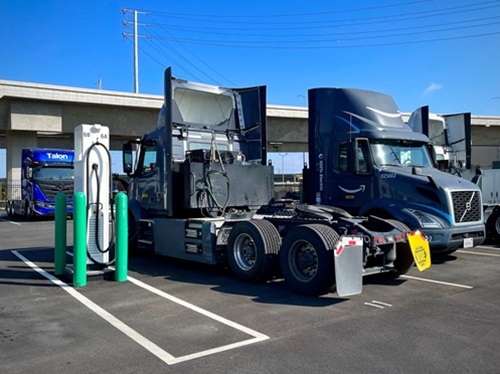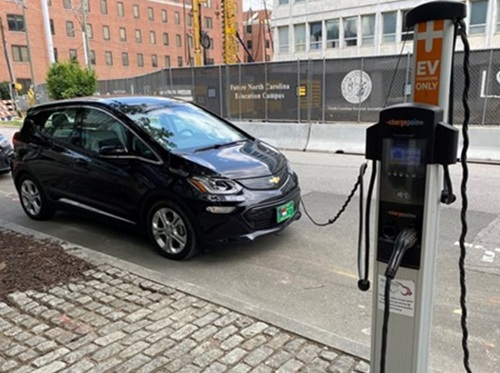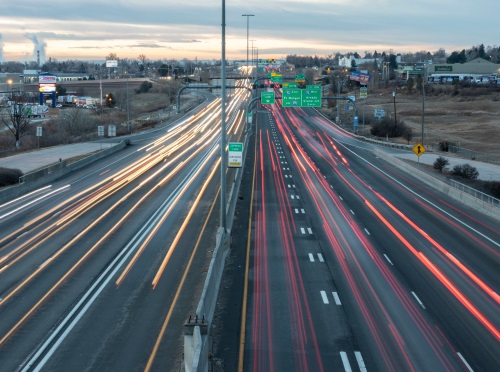The administration of Colorado Governor Jared Polis (D) recently finalized its Clean Truck Strategy – initially unveiled in March – after what the governor described as “extensive public input.”
[Above photo by the Colorado DOT]
Developed by the Colorado Energy Office, the Colorado Department of Transportation, and the Colorado Department of Public Health & Environment, the 27-page Clean Truck Strategy seeks to encourage the adoption of zero-emission medium- and heavy-duty trucks statewide, potentially reducing greenhouse gas or GHG emissions from those vehicles by at least 45 percent in Colorado by 2050.
Medium- and heavy-duty vehicles covered by Colorado’s Clean Truck Strategy include tractor-trailers, school buses, snowplows, delivery vans, large pick-up trucks, and many different vehicle types in between.
A separate 147-page study compiled by the Colorado Energy Office found that medium- and heavy-duty vehicles are the second-largest source of GHG emissions in the transportation sector, producing 22 percent of on-road GHG emissions despite making up less than 10 percent of the total Colorado vehicle population.

That study found if Colorado pursues an “accelerated transition” to zero-emission medium- and heavy-duty vehicle models, it could cut GHG emissions by 45 percent to 59 percent, reduce nitrogen oxide emissions by 54 percent to 93 percent, and reduce particulate matter emissions by 53 percent to 68 percent below 2005 levels by 2050.
Those three state agencies said they would continue collaborating with stakeholders and initiating implementation on “near-term” actions over the next few months, including:
- Development of the Clean Transit Enterprise 10-Year plan
- Development of the Clean Fleet Enterprise 10-Year Plan
- Development of the Community Access Enterprise 10-Year Plan
- Stakeholder outreach for the Advanced Clean Trucks and Low NOx rules
Those agencies also expect to update the Clean Truck Strategy every two years to respond to “evolving market and lessons” learned from implementing the plan’s near-term requirements. “Colorado has enormous opportunities to reduce pollution and improve quality of life by transitioning from diesel to zero-emission trucks and buses,” explained Will Toor, executive director of the Colorado Energy Office, in a statement. “This strategic plan creates a framework for achieving big things through investment, collaboration, and regulation.”
 Electric Vehicles
Electric Vehicles
WSDOT Opening $112M Clean Truck Program in April
February 11, 2026 Electric Vehicles
Electric Vehicles


